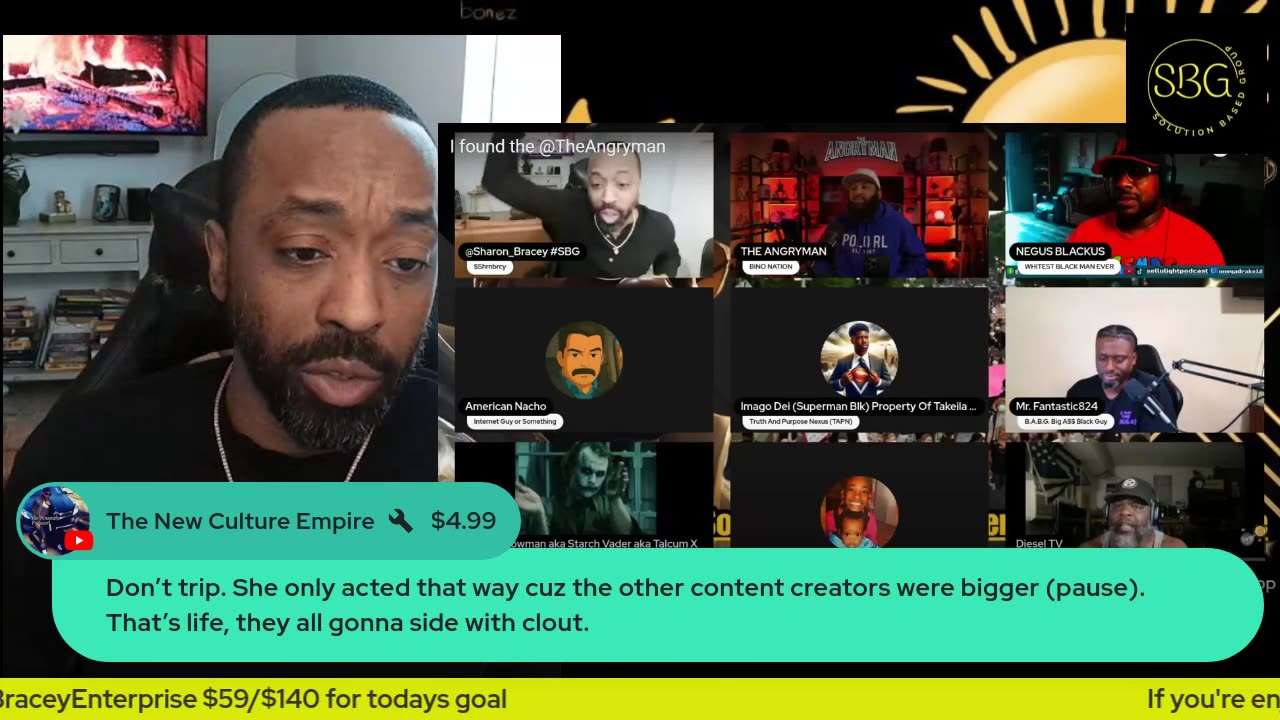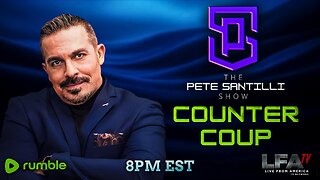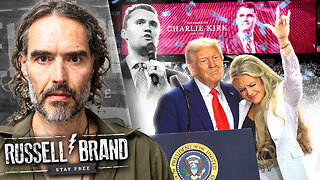Premium Only Content

Uncle Tom, Sambo, and the Modern Divide: How It Reflects on the Karmelo Anthony Case
In today’s discussion, we delve deep into the historical roots of two loaded terms: "Uncle Tom" and "Sambo," and how their legacy still reverberates in modern conversations. Originating in 19th-century America, these terms were weaponized to create divisions within the Black community. Uncle Tom, originally a figure of resistance in Harriet Beecher Stowe’s Uncle Tom’s Cabin, was ironically transformed into a derogatory term for someone perceived as betraying their race to appease white people. Meanwhile, Sambo became a racial caricature used to demean Black individuals as subservient, lazy, or cowardly. Both labels were tools of oppression, wielded to pit Black individuals against each other.
Fast forward to the present, and the shadows of Uncle Tom and Sambo still loom large. These terms resurface in debates, social media arguments, and public controversies, dividing communities and reinforcing stereotypes. In the case of 17-year-old Karmelo Anthony, accused of fatally stabbing Austin Metcalf and claiming self-defense, these cultural dynamics come into sharp focus.
The tragic case of Karmelo Anthony has polarized public opinion. On one side, supporters rally behind him, viewing his actions as a result of systemic pressures and a tragic event sparked by fear and self-preservation. On the other side, critics scrutinize every move of Karmelo’s family, from their fundraising efforts to public statements, accusing them of mishandling their public narrative. In the midst of this debate, the language of division—modern echoes of Uncle Tom and Sambo dynamics—emerges, with accusations of dishonesty and betrayal being thrown around. It’s a divide that reflects not just differing opinions, but also the societal tensions that have persisted for centuries.
This divide serves as a distraction from the larger issues at play: the complex intersections of race, justice, and public perception in America. The media’s portrayal of Karmelo Anthony swings between sympathetic youth and dangerous criminal, feeding into the narratives that polarize communities. This framing taps into the historical weaponization of identity, where individuals are forced into boxes that serve broader social agendas rather than addressing the nuances of their humanity.
But there’s a silver lining in revisiting these uncomfortable truths. The history of Uncle Tom and Sambo, painful as it may be, offers a chance to reflect on the progress that’s been made and the work that remains. Instead of letting these labels divide us, we can use this moment to foster honest conversations about unity, accountability, and systemic change. The Karmelo Anthony case reminds us that while these historical labels may resurface, they don’t have to define us. We have the power to move beyond them, to seek justice not just in the courtroom, but in our communities and conversations.
Let’s challenge ourselves to rise above these old tools of division. Let’s focus on building bridges instead of barriers, on seeking understanding rather than judgment. Because at the heart of this case, and so many others like it, is the need for empathy, fairness, and a commitment to doing better—not just for individuals like Karmelo, but for everyone affected by these enduring societal tensions.
#UncleTom #Sambo #KarmeloAnthonyCase #RacialTensions #SystemicJustice #PublicPerception #CommunityUnity #EmpathyAndFairness #ModernDivide #CulturalReflection
-
 1:24:12
1:24:12
Katie Miller Pod
3 hours ago $0.72 earnedEpisode 7 - Jillian Michaels | The Katie Miller Podcast
35.1K3 -
 LIVE
LIVE
LFA TV
1 day agoLFA TV ALL DAY STREAM ! | MONDAY 9/22/25
696 watching -
 LIVE
LIVE
LIVE WITH CHRIS'WORLD
3 hours agoLIVE WITH CHRIS'WORLD - Key Takeaways From Charlie Kirks Memorial
82 watching -
 1:37:17
1:37:17
Liberty Sentinel
6 days agoURGENT: Dr. Malone Warns of "Vaccine Cult" & Effort to "Fix God Gene" With Shots
6.13K4 -
 LIVE
LIVE
Rallied
4 hours ago $0.45 earnedHigh Octane Warzone Wins All Night
82 watching -
 8:35
8:35
Adam Does Movies
9 hours agoHIM - Movie Review
15.7K3 -
 21:43
21:43
Jasmin Laine
5 hours ago“The Situation Is DETERIORATING”—CTV PANICS as Poilievre HUMILIATES Carney LIVE
16.4K9 -
 1:27:34
1:27:34
The Mike Schwartz Show
6 hours agoTHE MIKE SCHWARTZ SHOW Evening Edition 09-22-2025
14.7K3 -
 1:34:59
1:34:59
Russell Brand
8 hours agoTrump Hails Charlie Kirk A Martyr As 100,000 PACK Arizona Stadium To Honor “American Hero” - SF637
234K57 -
 1:58:55
1:58:55
The Charlie Kirk Show
8 hours agoThe Charlie Memorial Aftermath | Benny Johnson, Sortor, Brick Suit | 9.22.2025
225K207